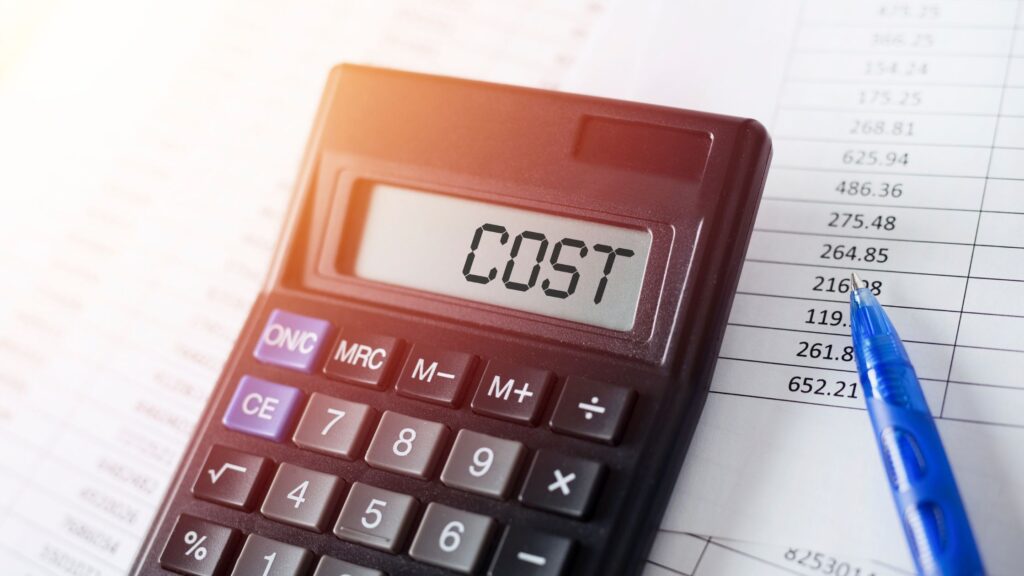Hiring an accountant is a smart move for any small business owner who wants to manage finances efficiently. However, many entrepreneurs hesitate due to uncertainty around the cost. Understanding how much an accountant costs for a small business can help you budget accurately and make informed decisions.

Table of Contents
ToggleFactors That Influence the Cost of an Accountant
Several factors affect how much you pay for accounting services. These include the type of service, the complexity of your business, location, and the accountant’s experience level.
1. Type of Service
Basic bookkeeping costs less than tax preparation or financial strategy planning. For instance, you might pay a few hundred dollars monthly for bookkeeping, while annual tax filing may cost upwards of $1,000. Services like payroll management, cash flow analysis, and audit support can also influence the final price. When choosing services, align them with your business goals.
2. Business Complexity
If your business has multiple income streams, employees, or inventory, accounting tasks become more complicated, increasing the cost. For example, a business operating in multiple states or dealing with international transactions will likely need advanced services. Complexity also arises from dealing with industry-specific regulations, which may require specialized knowledge.
3. Location
Accountants in large cities generally charge more due to higher overhead costs, but many professionals now offer remote accounting services, which may help reduce costs. Exploring virtual accounting options can provide access to skilled professionals at more competitive rates, especially for businesses located in rural or high-cost areas.
4. Experience
A highly experienced accountant may charge more, but they often deliver greater value through strategic advice and error reduction. They can help you plan for growth, make sound investment decisions, and avoid financial pitfalls. Look for credentials such as CPA (Certified Public Accountant) or EA (Enrolled Agent) for assurance of expertise.
Average Cost of an Accountant for a Small Business
On average, small businesses spend between $1,000 and $5,000 per year on accounting services. Hourly rates typically range from $50 to $300, depending on the service and expertise, and monthly packages may range from $200 to $500 for basic services.
If your business is just starting, you might only need occasional consultation. However, as your operations grow, consistent support becomes essential. An annual tax filing alone could cost $750 to $2,000, depending on your situation.
Common Pricing Models:
Accountants may use different pricing structures:
- Hourly Rate
Ideal for occasional services. You pay only for the hours worked, which offers flexibility but can add up quickly if tasks take longer than expected.
- Flat Fee
Best for specific tasks like tax preparation. This model provides cost certainty and helps you avoid unexpected charges.
- Monthly Retainer
Suitable for ongoing services like bookkeeping and payroll. You pay a set fee monthly, which can simplify budgeting and ensure continuous support.
Selecting the most suitable pricing model allows you to manage costs effectively while ensuring you receive the support your business requires.

Why Hiring an Accountant is Worth the Cost
Many small business owners try to handle accounting themselves. While this may seem cost-effective, it often leads to errors and missed opportunities.
Key Benefits:
- Ensures Compliance: Avoids penalties by staying within legal requirements. Accountants stay up to date on tax laws and ensure that you meet all deadlines.
- Reduces Tax Liabilities: Identifies deductions and credits. A professional can spot opportunities that you might overlook.
- Provides Financial Clarity: Supports better decision-making. Accountants offer reports and insights that help guide your strategy.
- Saves Time: Frees up your schedule so you can focus on growth and operations instead of balancing books.
- Enhances Credibility: Having organized financials and professional oversight can boost your credibility with lenders and investors.
These benefits often outweigh the initial costs.
Tips to Save on Accounting Costs
You can reduce accounting expenses without sacrificing quality. Here are a few tips:
- Use Technology
Use accounting software to streamline tasks. Tools like QuickBooks, Xero, or FreshBooks automate data entry and reporting, reducing the workload for your accountant.
- Stay Organized
Organize financial records regularly to reduce accounting hours. Categorize receipts, track expenses consistently, and reconcile accounts monthly.
- Bundle Services
Bundle services for better pricing. For example, combining payroll and tax filing with monthly bookkeeping may lead to discounts.
- Hire Strategically
Hire an accountant only for complex or annual tasks, and use software, internal processes for day-to-day activities. Also, consult professionals for high-impact decisions.
- Negotiate and Review
Always request a detailed breakdown of services and fees, compare quotes from multiple accountants, and don’t hesitate to negotiate. Also, review services annually to ensure you’re still getting value.
Being proactive helps you stay in control of your finances while keeping costs manageable.
Conclusion
Now that you understand how much an accountant costs for a small business, you can plan accordingly. Whether you need full-service accounting or occasional support, investing in a professional accountant pays off in the long run. For reliable and affordable accounting solutions tailored to small businesses, visit Freedomfolio.

Frequently Asked Questions
1. Do small businesses need an accountant?
Yes, small businesses benefit greatly from accountants who can handle taxes, financial reporting, and strategic planning. They help avoid costly mistakes and provide valuable insights for growth.
2. Can I manage my business accounting with software alone?
While software helps, it cannot replace the expertise of a professional accountant, especially during tax season or complex financial scenarios. Using both can be the most effective strategy.
3. What is the difference between the roles of a bookkeeper and an accountant?
Bookkeepers handle day-to-day financial records, while accountants provide analysis, strategy, and tax services. Accountants often review the work of bookkeepers and offer higher-level guidance.
4. How do I choose the right accountant for my small business?
Look for someone with small business experience, relevant certifications, and transparent pricing options. Ask for referrals, read reviews, and interview potential candidates before hiring.





